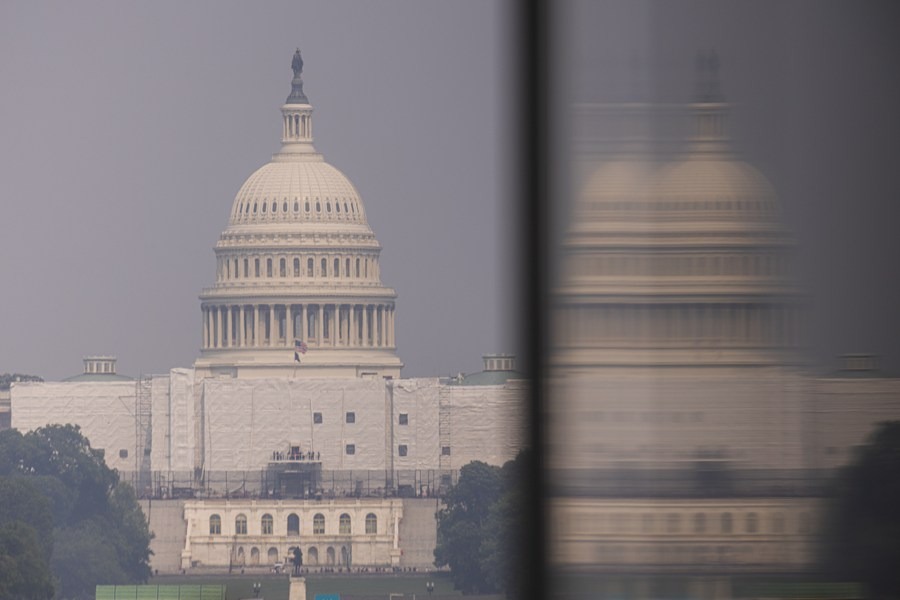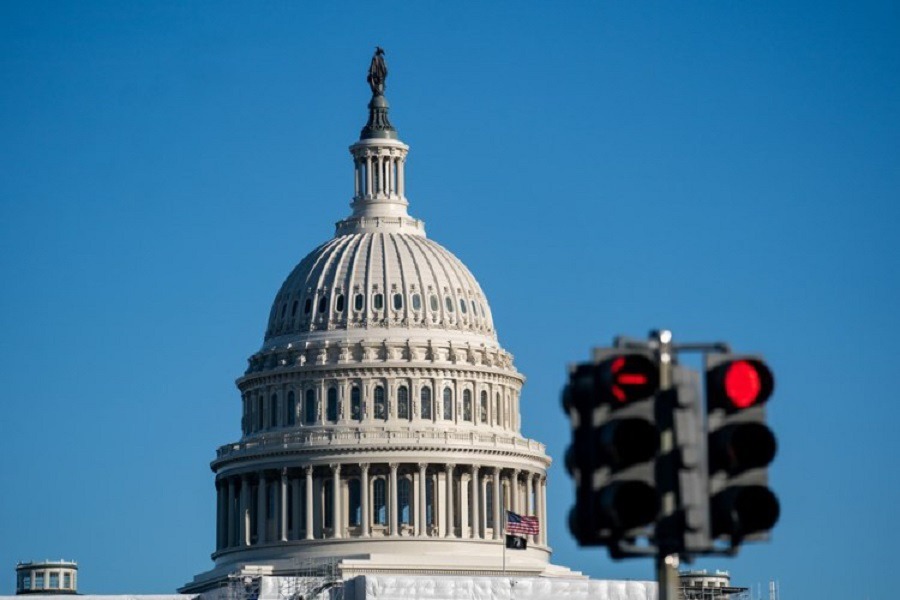Sanctions will result in reduction of dollar's influence


Editor's note: The world has undergone many changes and shocks in recent years. Enhanced dialogue between scholars from China and overseas is needed to build mutual understanding on many problems the world faces. For this purpose, the China Watch Institute of China Daily and the National Institute for Global Strategy, Chinese Academy of Social Sciences, jointly present this special column: The Global Strategy Dialogue, in which experts from China and abroad will offer insightful views, analysis and fresh perspectives on long-term strategic issues of global importance.
In her testimony to the House Financial Services Committee on July 9, US Treasury Secretary Janet Yellen cautioned that the world is increasingly moving away from the US dollar. She specifically underlined the negative role of sanctions: "We have very powerful sanctions that are available because of the important role of the dollar in international transactions. The more we have used sanctions, the more countries look for ways to engage in financial transactions that don't involve the dollar."
Confidence in the dollar has recently declined due to the illegal freezing and subsequent confiscation of Russian assets by the G7 countries, disrupting the stability of the current global financial system. More than $288 billion of Russian assets remain in the G7 countries, the European Union and Australia, of which 200 billion euros ($218 billion) is in the EU. The frozen assets produce around $3 billion in annual interest income.
In June, the G7 nations used those assets to give Ukraine a $50 billion loan. This decision directly contravenes international law, which states that assets belong to their owner and not the country where they are located. The consequences of such illegal actions, including the erosion of trust among Western sovereign debt holders in their issuers, are causing serious concern among the buyers, although not yet panic.
As a result, countries in the Global South are attempting to divest from US government bonds. In April 2024, China's holdings of US treasuries fell from $849 billion a year before to $775 billion, the lowest level since 2009. During the same period, the other BRICS countries decreased their holdings of US treasury bonds as well: India sold $1.4 billion, Brazil shed $1.2 billion, and Saudi Arabia $300 million. Earlier in the year Saudi Arabia indicated that it may sell some of its European debt assets if the G7 decided to confiscate Russia's frozen assets. The kingdom's finance ministry has communicated its disagreement with this idea to some G7 colleagues, with one person reportedly describing it as a veiled threat.
In her testimony, Yellen specifically noted the role of the enlarged BRICS in the coordinated shift away from the dollar.
The members of the expanded BRICS grouping have expressed long-standing concerns about the dollar's dominance in the global economy and its use as a political weapon. The BRICS countries, initially comprised of Brazil, Russia, India, China and South Africa, later joined by Egypt, Ethiopia, Iran, Saudi Arabia and the United Arab Emirates, have come together to increase their say and influence on the global stage.
The decline of the dollar has led to a search for settlement options in local currencies. For instance, China and Russia have been collaborating to create alternative payment systems, such as the Cross-Border Interbank Payment System, or CIPS, which could be an alternative to the SWIFT system. At the beginning of the year, China and the United Arab Emirates carried out the first cross-border payments between the two nations using the digital dirham. This transaction utilized a newly developed digital platform and signifies the beginning of a new phase in converting central bank digital currencies.
Iran has announced that all transactions between Iran and Russia are now conducted without using dollars. Since last year, India and Russia have doubled their payments in national currencies (rupee-ruble). Saudi Arabia is also seeking to diversify its economic partnerships, by exploring alternative currency agreements with the enlarged BRICS nations. If other significant oil exporters start accepting payments in alternative currencies, demand for US petrodollars will decrease, reducing their value and influence.
But a real breakthrough in mutual financial settlements would be creating a unified system for all the member countries of the bigger BRICS grouping. Apparently such a solution is not far off. Valentina Matviyenko, the speaker of Russia's Federation Council, announced at the BRICS parliamentary meeting on July 12 that work on an independent payment system "invulnerable to political pressure, abuse, and the interference of external sanctions" is ongoing.
Judging by the most recent information, the upcoming BRICS summit in Russia in October will prominently feature the establishment of an independent settlement payment system based on central bank digital currencies.
The BRICS countries are thus positioning themselves as representatives of an alternative economic order. Their efforts to create a more diversified and resilient financial network reflect a strategic desire to reduce dependence on the dominance and politicization of the US dollar and mitigate the impact of the US wielding current and future sanctions.
The status of the US dollar, once considered inviolable, is now becoming increasingly uncertain. As the global economic balance shifts, the strategies and alliances formed today will determine tomorrow's new economic and financial order. The US and its partners need to approach this new dynamic cautiously, stop using sanctions and carefully analyze the consequences of their unilateral actions for the sustainability of their future economic and geopolitical position.
Yellen's powerful warning highlights a critical moment in reshaping the architecture of the global financial system. It is evident to everyone that the misuse of sanctions by the US and other Western countries will accelerate the shift toward a fairer and more multipolar world. As more countries seek alternatives to the US dollar, the world may soon witness a new financial landscape that will forever change international relations, global trade, investment and the global power dynamics.
The author is former prime minister of the Kyrgyz Republic and a distinguished professor at the Belt and Road School at Beijing Normal University. The author contributed this article to China Watch, a think tank powered by China Daily.
The views do not necessarily reflect those of China Daily.
Contact the editor at editor@chinawatch.cn.


































